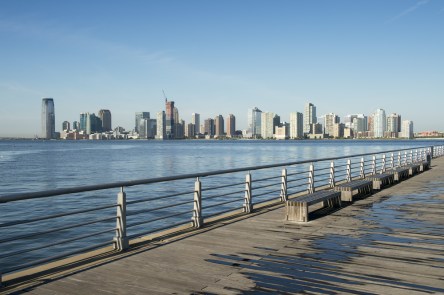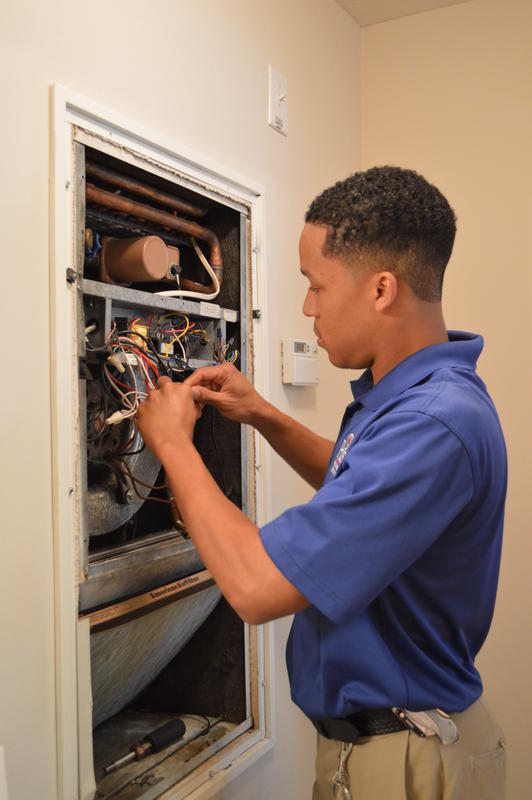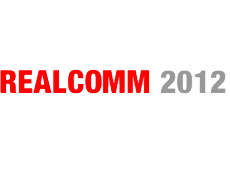At the recent Yardi Executive Briefing in Southern California, Tamara Berndt provided an illuminative glimpse into the future of real estate technology. As a Senior Director for Yardi’s multifamily consulting practices team, Berndt is ideally positioned to forecast industry trends. Working with both multifamily and commercial clients provides her with a holistic vision of where real estate technology is headed. In over 23 years at Yardi, she has been involved in countless development and implementation projects for clients of all sizes. So what does the future Yardi user experience look like? Look no further than your smartphone. “Everybody’s mobile. You do everything from your phone. In today’s world, everything is focused on apps,” Berndt explained. “Imagine that no one is touching the core Voyager application at all. That’s the back office ERP solution. The following example takes place entirely on apps.” Here is the use case she presented: A multifamily resident, or a commercial tenant, notices a leaky toilet in their unit. Rather than calling a hotline or going to a desktop, they use the RENTCafé mobile app on their phone to submit a service request. Their message includes a photo of what is happening and an audio file describing the problem, all uploaded in the app. That report becomes a work order, which populates in the Yardi Maintenance Manager Mobile app used by the property’s maintenance supervisor. Even if they are out of the office, a push notification that a new work order has arrives notifies the manager to assign an available technician to look into the issue right away. The technician on duty receives a similar push notification alerting them to the new assignment. Their role based-app is Yardi Maintenance Mobile, and it allows the tech to have eyes on the problem before they even visit the unit, thanks to the photograph the resident provided. Needed parts or supplies can be ordered from a vendor within the app before they get to the job, saving time and creating a faster path to resolution. Once at the unit and with the repair completed, the technician can close out the work order with a photo of the repair and report of the work entailed to resolve the issue. It is all submitted within the app and documented in Voyager for expense reconciliation and reporting. Meanwhile, the purchase order created for parts used in the repair arrives in the payables app used by the regional manager in charge of approving expenses. They authorize the purchase from their phone while on the road visiting another property. A treasury app confirms that funds are available for the transaction, and the Yardi Bill Pay service remits a check or EFT payment to the vendor. The resident, who has gone on with their day, receives a final message that the issue is resolved and a clean bathroom will be waiting for them when they return home. “In that entire process, nobody has logged into the Voyager application,” Berndt observed. “And as those familiar with our product suite might have noticed, most of the applications described already exist today.” Known for constantly striving to improve its product suite to benefit clients, Yardi developers are currently undergoing an analysis of the entire Voyager framework to identify additional app opportunities, Berndt revealed. So when will this all-app environment become a daily reality? It is likely to be sooner than you think. “The revolution in mobility, and having access to cloud applications and data wherever you are, 24-7, is a big deal,” said Noel Clark, Vice President of IT for Yardi client Kennedy Wilson, who talked about innovation and mobility at YASC. “Not that long ago, it was an ordeal to just get online. Now many people just work on their mobile device. This is the first year that I came to the conference and did not bring a laptop. I can do pretty much everything I need...
Rental Convenience
Applied Property Management Co.
Applied Property Management Co. takes pride in spreading fast, convenient service across a portfolio that consists of thousands of apartment units which include market rate, subsidized housing and commercial spaces in New Jersey. Making life easier for residents and staff lies at the heart of Applied Property Management’s mission. “Our company practices a paperless approach, starting at the very beginning—applying to live here,” says Raymond Lucena, a Yardi® specialist with Applied Property Management, the property management arm of Hoboken, N.J. developer Ironstate. The company’s residential leasing process is 100% online, from marketing, applying and screening through lease signing and payments. “It’s a user-friendly experience, which is a lot different than relying on paper as we did previously. If you search our properties through Google, for example, you’ll go directly to our property websites via RentCafe®. Our lead conversion rate is higher in the four years we’ve been using RentCafe because applications can be completed almost instantly.” Applied Property Management’s philosophy of paperless convenience extends to residential service. “About 92% of our market-rate residents pay rent online; we expect that to reach 99%,” Lucena says. “Eventually we want to duplicate this degree of participation in our commercial space. We want all residents, vendors, and retail managers to manage work orders, ledgers, payments and everything else electronically.” Applied Property Management went mobile as well as paperless in the search for greater efficiency. “We equipped our leasing agents with tablets and mobile devices. When they’re showing a unit, they can launch the application, screen the prospect through Yardi Resident Screening™, and sign the lease on the spot, without waiting for paper documents to come through,” Lucena says. Staff technicians can receive, prioritize and document maintenance and inspections in the field with the mobile-enabled Yardi Maintenance™ and Yardi...
Mobile Maintenance
Top Ten Benefits
Mobile tools are all about immediacy and action — and when it comes to maintenance, that means responding more quickly, entering and completing work orders from the field, and getting real time updates to ensure the right work is done at the right time. Yardi Maintenance Mobile offers the convenience of creating, updating and closing work orders from a mobile device, with the ability to include photos and notes as well as add technician labor and inventory to work orders — and the information is automatically updated in Yardi Voyager®. For Wesley Fonseca, maintenance technician at Post Glen near Atlanta, Ga., Maintenance Mobile has been a game changer. “I’ve seen my time management get so much better with Yardi because of how I’m able to access the work orders on my smartphone. Maintenance Mobile has helped me save time in that I don’t have to print the work orders. I can map out my whole day and give certain spaces for emergencies and that sort of stuff. I have the ability to add and drop work orders, and sign them off in the field. Also, being able to have what I need at my fingertips, right on the spot, has helped me be more time efficient.” In addition to improving efficiency, mobile tools help improve retention by providing great service to residents and tenants. “Maintenance Mobile is a good selling point as far as the residents are concerned because everything is so technologically advanced now. They expect to see technology in use,” Fonseca says. “The residents have their place where they can put the different time of whatever day that they prefer for us to visit. They like being able to submit requests online, have us receive them, and then fix things and document...
Mobility & CRM
Insight from Realcomm 2012
With a commitment to deliver the most relevant, up-to-date insight and technology available for the commercial real estate industry, Realcomm attendees typically seize the chance to investigate the latest tools. With over 100 vendors, searching for a product with the breadth and footprint to fit your business was a top priority for many attendees at this conference, held June 13-14 in Las Vegas. The vendor expo was alive with buzz, and hot topics included smart building technology, CRM, and mobility. Historically, a major hurdle for commercial real estate has been the brokers’ reluctance to share their contacts. After all, a positive (and often long-term) client/broker relationship has consistently proven to be a driving force behind closing deals. For brokerage firms, this has been a constant obstruction to the industry’s adoption of technology: figuring out how to secure the information available inside a CRM to a point where brokers feel their relationships can remain intact while still allowing the firm to access the decision making information they need. Fortunately, improved technology has led to convergence: being able to see the pipeline, discover possible closes, and most importantly increase revenue by lowering vacancy rates all the while maintaining a secure database of clientele that’s available on the go. Mobility is transitioning from a luxury to a necessity and as a result was an equally hot topic. In part due to increased security concerns brought about by the recent mobility and BYOD (bring your own device) trends have left commercial real estate IT executives in perpetual problem solving mode. There’s a lot to think about when it comes to incorporating the consumer driven tech fads we see today; security being at the forefront. At our recent user conference, Yardi Voyager clients learned about the syncing and wiping...




